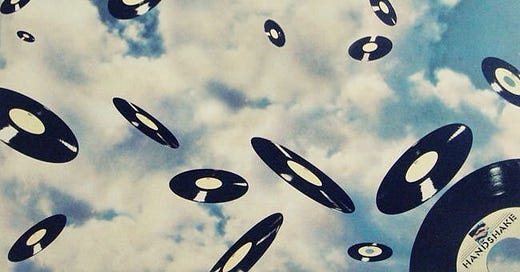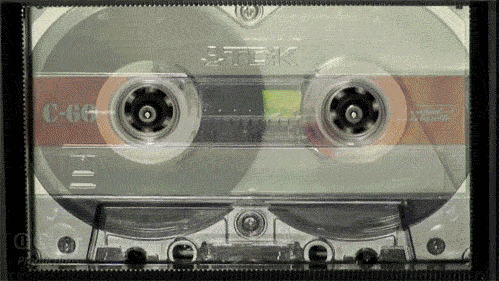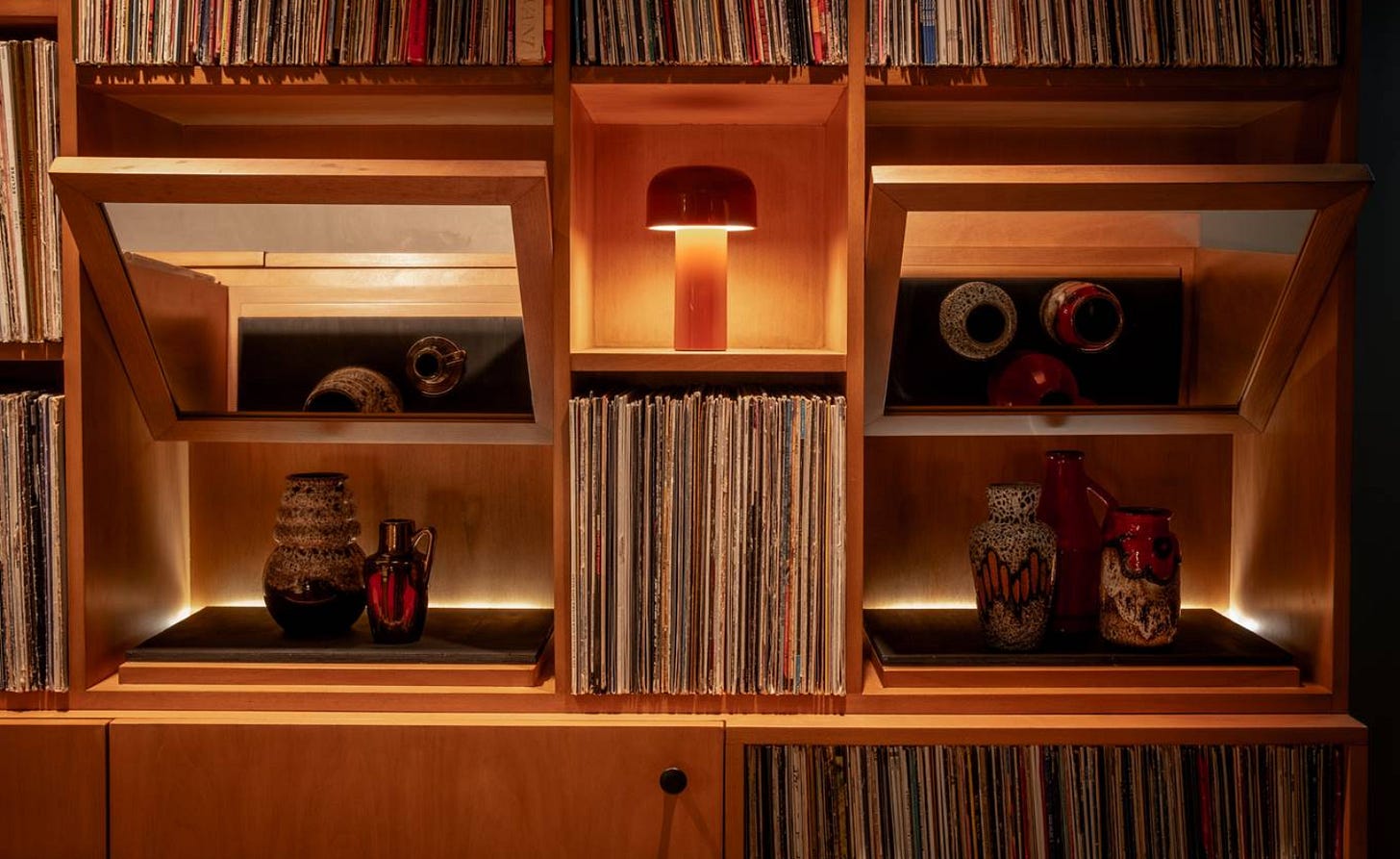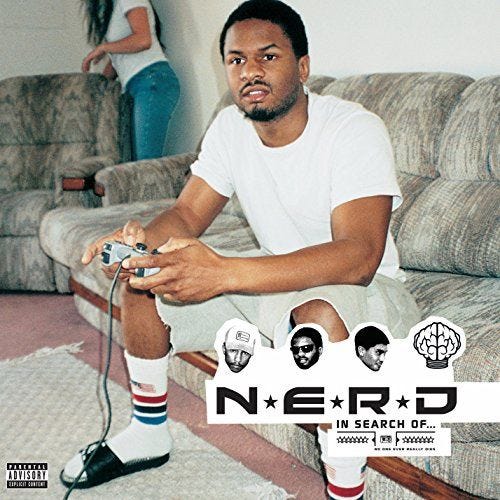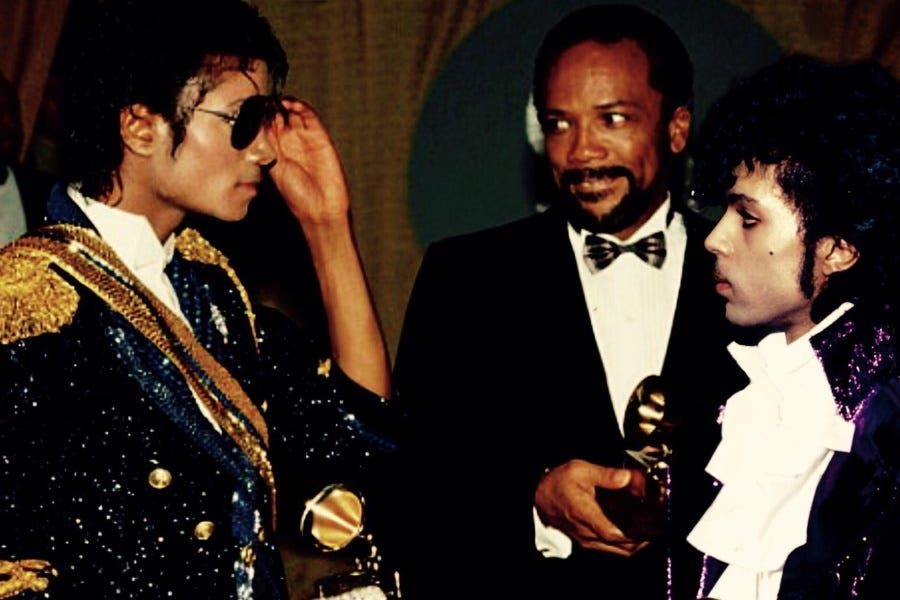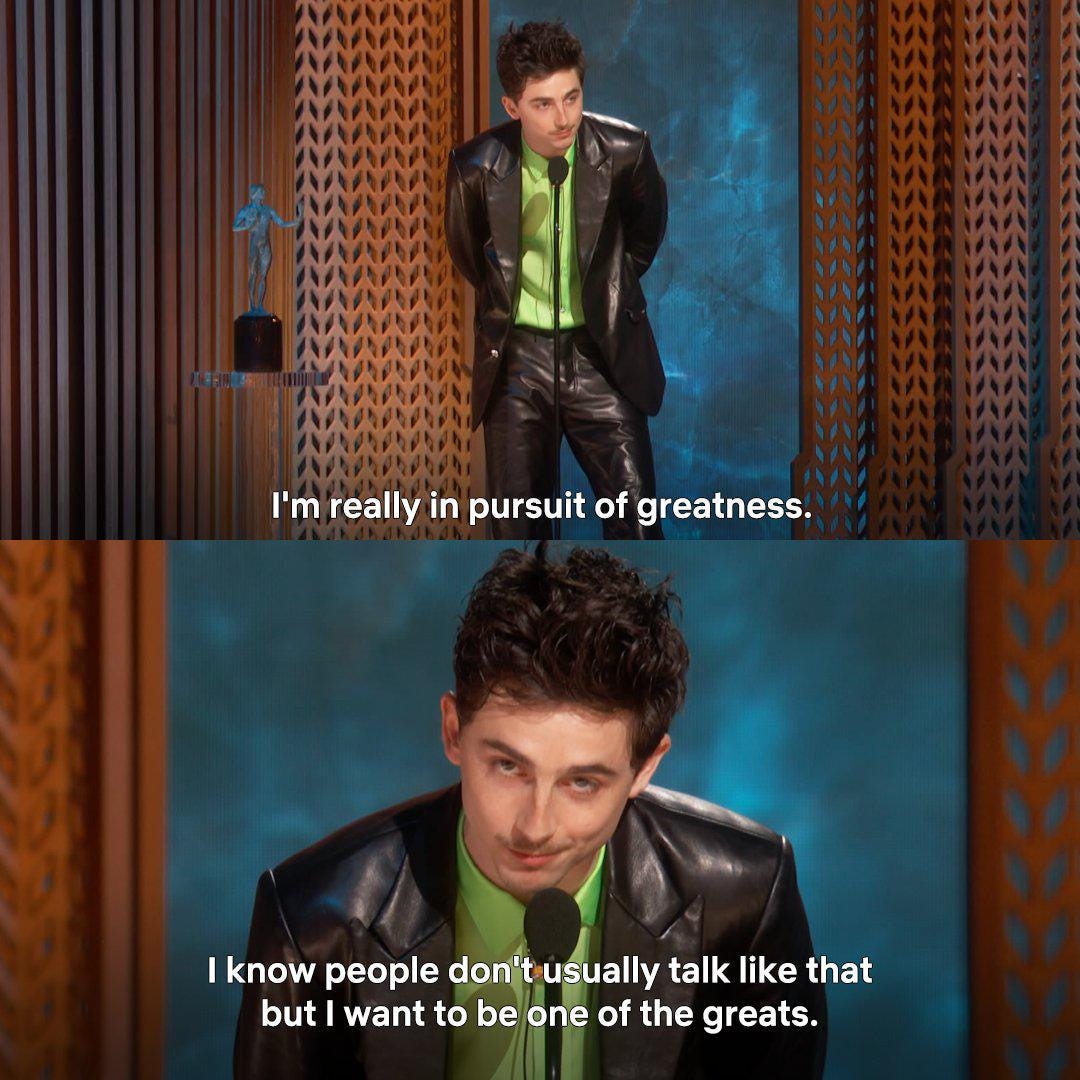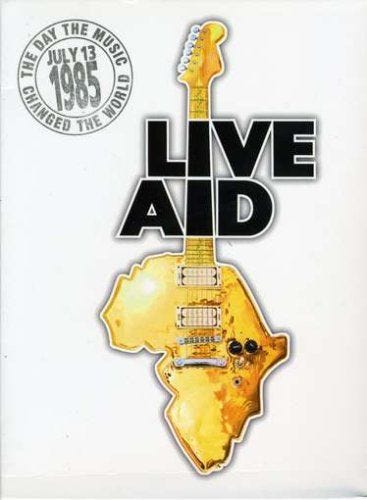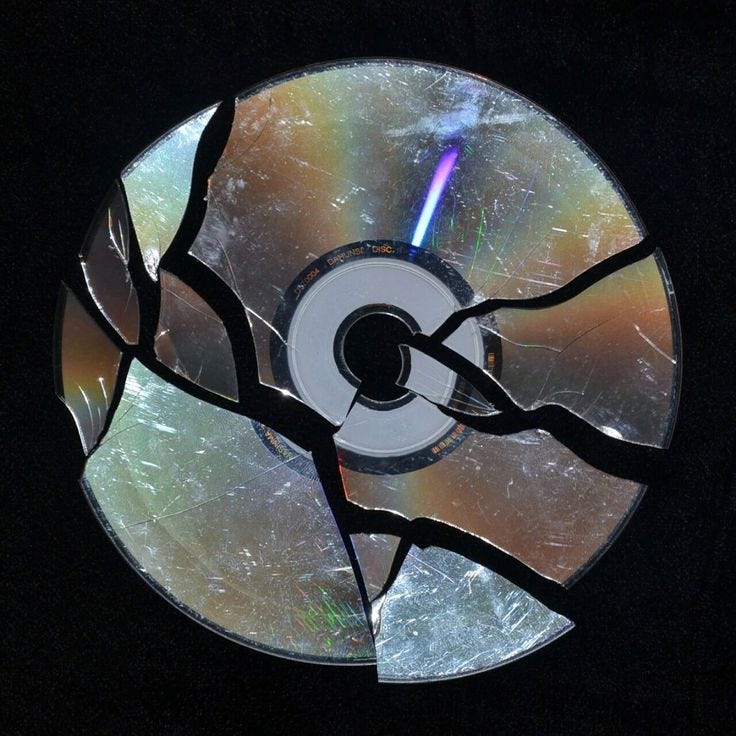If there's no timeless music being made then what's the soundtrack of our times?
Thoughts on music's disintegration as a tool that navigates and marks the times, to a product that navigates the scroll - without timeless music being made... What's our soundtrack?
A recent Clipse (!!!!!) interview with Rolling Stone, starting the press run for the long-long-long-LONG awaited Clipse return with the album Let God Sort 'Em Out, featured some quotes that gave me some food for thought on modern music, and what we’re missing in it so desperately. An excerpt from Pusha T:
"Man, Stevie walks out, his son sits him in front of the keyboard, and I'm talking about people fanned out. Leonardo DiCaprio's screaming to the top of his lungs. People are in tears, crying. And Stevie is going. He's going hit for hit, for hit, for hit, for hit. Back to back, man, for about probably another 45 minutes to an hour, just killing it."
‘‘People in tears, crying. Stevie is going. He’s going hit, for hit, for hit, for hit.’’
How many modern musicians can create these feelings? How many modern musicians can go hit for hit for hit for hit? How many musicians want to be great? Does the modern music industry even allow for greatness? Do listeners know what greatness sounds like anymore?
If there's no timeless music being made then what's the soundtrack of our times?
F#ck knows. But here’s a go at unpacking it.
Stevie Wonder is a timeless artist who made timeless music by design. Stevie is a great statue in motion. His Met Gala performance highlights everything that we've lost in modern music. Music is in a state of post-timelessness, and this has fractured the form, the industry, and its meaning. But there are several contributing factors to this paradigm.
The Algorithm as Conductor
The absence of timeless music today is not just a cultural failure - it’s a defining characteristic of our times. Our soundtrack is not found on dancefloors, as they rarely see footsteps anymore. Those happy feet are dancing along TikTok’s algorithmic tiles. So the very experience of music in this time is transience itself— reflecting the algorithmic churn, viral cycles, and infinite disposability that mirror the broader acceleration and fragmentation of 21st-century FMCG in which, I believe, music has become a part of.
Streaming algorithms are the invisible conductors of the modern musical experience, replacing DJs and music channels, creating playlists or ‘‘taste vacuums’’ as I like to call them, that fragment the concept of music as a communally shared cultural moment. Unlike previous eras where radio DJs or record labels could curate and cajole collective musical memories, algorithmic curation ensures that everyone's "soundtrack" is unique. Though great for discovery and a way of navigating this new musical landscape, where more than 100,000 songs are uploaded to DSPs daily, it has completely decentralised the experience of music. Algorithms-at-large, not any music they serve, are increasingly becoming the defining musical force of our time.
The Murder of the Dancefloor
The loss of tactility in music, coupled with the change in nightlife trends, has created a situation where music doesn’t have the same opportunity to become timeless with our lived experience, and can emerge as secondary in culture-at-large, rather than fundamental in the way it has been in the last 60 years. Although a new wave of clubbing has emerged, soft clubbing, brilliantly coined by my boy Yusuf Ntahilaja, which services the changing needs of a wider group of ravers - non-drinkers or low-drinkers, non-druggers, people who want the vibe of clubbing without the headache that comes with hedonism.
Although this multiplicity is accurate of our times, and an accurate representation of the motivation of new-age ravers and raving, the loss of homogenous, hedonistic hubs means that music will still struggle to stick in a way that can make it timeless.
Listening bars aren’t popular because the majority of attendees want high-fidelity sound of their favourite vinyls; they’re popular because they’re calming, meditative spaces that are aesthetically heightening and rarified.
Without dancefloors, timelessness is incredibly hard to achieve. For example, UK legend, J Hus released his long-awaited sophomore album Big Conspiracy during COVID, an album that I and many others cite as his masterpiece. That album is littered with beloved classics, and despite its deep reverence, people argued it didn’t do well because we couldn’t dance to it outside. Its impact was almost forgotten because it didn’t have the opportunity to legitimise its legacy on the dancefloor, with lived experiences. J Hus is doing his first show for the album this month, five years after releasing.
In Search Of… Permanence
Perhaps a search for timelessness, a pursuit for permanence, is what’s driving the resurgence of indie rock. And new evolutions of it. Artists are anchoring their sound on indie melodies to hook onto something timeless, to then build their own worlds on top of. It’s behind the rise of artists like JD Cliffe, Bakar, Masterpeace and more. Because outside of Afrobeats and trap, which are more recent, indie is one of those last real, adhesive, timeless sounds. Artists of this era know that there isn’t a dominant sound they can attach to. Or the ones they can are proliferated to a point of churn, like contemporary US hip-hop.
Traditional genre boundaries have dissolved into infinite micro-classifications and hybrid forms, like the indie rap-rock wave. Where previous eras could be defined by dominant musical movements (jazz age, rock era, hip-hop's golden age), our period is characterised by the simultaneous exploration of every possible musical combination. This fluidity prevents any single style from becoming any definitive "sound". It also means artists are in a constant state of experimentation, so they’re always releasing new work. It’s a creative and commercial catch-22.
Content Over Excellence
People blame these advanced release cycles for ephemerality in modern music, which is a factor, but not the main one—artists of Stevie's era, the Motown era, and later the soul, disco and funk eras were notoriously prolific. Hit, after hit, after hit, after hit. The difference is the metric they were making for. They created every release to be timeless music; they wanted every album to be legendary. Artists were trying to outdo each other nonstop. True musical rivalries that produced excellence.
But the metric for artists now isn't excellence at scale, it's content at scale. Music now operates under the same principles as all content in the attention economy: designed for immediate engagement rather than lasting impact. Songs are crafted with streaming metrics in mind. The economic incentives of our era actively work against timelessness across all media.
The Great Shame
This makes me wonder if modern music has a shame problem. Are artists ashamed to be great? To stand up and say we want to be the best? Or does being the best in music not matter anymore? Has the industry shrunk the craft into reels and short-form to the point where artists dont believe greatness is a worthwhile pursuit anymore?
Or maybe audiences no longer understand what greatness looks like if it isn’t wrapped in virality first. Kendrick Lamar, a generational great for at least a decade, has had his best 18 months ever, built off a diss track. Taking down popular pop artist Drake is what made people recognise his greatness, at least in a mass cultural sense. Greatness once before was just about the music, but to achieve greatness in music now, timelessness in music now, you need to have a viral moment first, and the song later.
The Political Play
There are bigger things in this mix than just dancefloors in this timelessness idea, though. Even politically, looking at Gaza. During other wars and/or genocidal campaigns over the last 60 years, there have been huge musical moments to match and to create mass awareness. Real advocacy. Musicians were some of the first to mobilise and take action. Now, with Gaza, we have a multitude of musicians responding—Kneecap, Saint Levant, and so many more.
But, even this decentralised response, as opposed to the big, tentpole event moment of say a LiveAid, is an example of the impermanence of music—and the challenges that it’s creating are bigger than just enjoyment - they are political. The loss of timeless music has limited music’s political pulling power dramatically, shifting it from a lever of societal change to, like I mentioned earlier, into FMCG.
The New Timelessness
Some might argue that truly timeless music is being created but hasn't yet been recognised. Throughout history, what we come to consider "timeless" rarely starts as such. Hip-hop was thought of as a fad. Jazz was dance music. The Beatles were teen pop. Our inability to identify timeless music reflects the loss of fine-tuning in our ears; music taste-at-large (not mine) has dwindled. Rather than just an absence of timeless music? Do we still know what a classic song looks or feels like?
We might be witnessing something more profound than cultural decline. We might be standing at the threshold of a new understanding of what timelessness in music means. The hunger for permanence driving the indie resurgence, to me, looks like a symptom of a cultural correction already in motion.
The pendulum is swinging back. This era of post-timelessness might be preparing us for something unprecedented: not a return to the old model of musical permanence, but the birth of a new kind of timelessness: one that finds its eternity not in stasis but by continually rebirthing itself.
Our soundtrack can't be called a "track" anymore. It's a soundscape now. We're immersed in a broad, never-ending sonic expanse where we can either get wonderfully lost, accept vacuum-packed, algorithm-sealed playlists that function as secret Myers-Briggs tests, or simply abstain and stick to the tried and tested classics.
Either way, that play button ain’t gonna stop.
📡 That was a RADIO KNIFE transmission. Thanks for listening.📡
Written by Damola Oladapo, founder of House Captain and freelance strategist and copywriter. His strategic work spans global brands including Nike, Diageo, Brooks Running, and EA SPORTS FIFA.
RADIO KNIFE connects the dots between culture and commerce, delivering sharp insights that reveal how global trends, consumer shifts, and cultural moments shape the brands and behaviours around us.
Subscribe for weekly (hopefully) analysis that cuts through surface-level takes to uncover why things work the way they do.
ALWAYS ARRIVE UNPREPARED.


